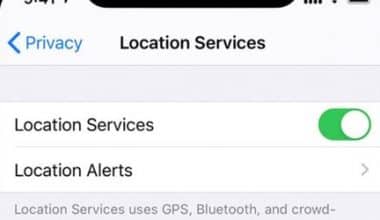AI voice assistants have become an indispensable part of our lives, transforming the way we interact with technology. From revolutionizing healthcare to education, smart homes, and customer service, and even attending meetings, voice assistants have infiltrated every aspect of our daily lives, including our usage of search engines. This article explores everything you need to know about these intelligent virtual companions for Android as well as iPhone users.
What Are Voice Assistants?
Voice assistants are software applications or virtual agents that use voice recognition and natural language processing technologies to understand and respond to spoken commands and queries from users. They are designed to simulate human-like interactions and assist users in performing various tasks, retrieving information, and controlling devices through voice commands. They use advanced technologies such as automatic speech recognition (ASR) to convert spoken language into written text, natural language processing (NLP) to analyze and interpret the meaning behind user commands, and text-to-speech (TTS) to convert the assistant’s responses into spoken language for the user to hear.
Generally, voice assistants can be accessed through various devices, including smartphones, smart speakers, tablets, and other Internet of Things (IoT) devices. Users can interact with them by speaking commands or asking questions, and the voice assistant will provide appropriate responses or perform requested actions.
Voice assistants offer a wide range of functionalities, including, but not limited to the following:
- Setting reminders and alarms
- Sending messages and making calls
- Providing weather forecasts
- Playing music and media
- Answering general knowledge questions
- Providing directions and navigation
- Controlling smart home devices
- Managing calendars and schedules
- Assisting with online shopping
- Providing recommendations and personalized information
Who are Voice Assistants Most Useful For?
Voice assistants are useful for a diverse group of people, ranging from those with disabilities to senior citizens, parents and caregivers, busy professionals, and so on.
Benefits of Voice Assistants
Voice assistants offer several advantages that have contributed to their popularity and the following are some of them;
#1. Convenience
Voice commands provide a hands-free and effortless way to interact with technology, particularly when our hands are occupied or when we are unable to use traditional input methods.
#2. Efficiency
Efficiency is another significant benefit of voice assistants, and it stems from their ability to quickly and accurately perform tasks or provide information based on voice commands. Voice assistants can perform tasks quickly and accurately, saving users time and effort.
#3. Accessibility
Accessibility is a fundamental aspect of voice assistants and refers to the ability of individuals with diverse needs and abilities to easily interact with and utilize the technology.
#4. Integration with Smart Devices
Many voice assistants can control a wide range of smart home devices, allowing users to conveniently manage their connected devices with voice commands.
Limitations of Voice Assistants
While voice assistants offer numerous benefits, they also have limitations, and below are some of them:
#1. Privacy Concerns
Privacy concerns are a significant limitation when it comes to voice assistants, and this is because voice assistants listen to and record conversations, which raises concerns about data privacy and security. While voice assistants offer convenience and accessibility, they also raise important privacy considerations.
#2. Reliance on Internet Connectivity
Another limitation of voice assistants is their over-dependence on internet connectivity. Without an internet connection, most voice assistants lose their functionality and become ineffective.
#3. Accuracy Challenges
Despite significant advancements, voice recognition technology still struggles with accents, background noise, and correctly interpreting complex or ambiguous commands.
#4. Lack of Contextual Understanding
Voice assistants may have difficulty understanding context and maintaining coherent conversations for complex queries or multi-step tasks.
Best Voice Assistants
Determining the “best” voice assistant is subjective and depends on individual preferences and needs. This is because these voice assistants have their unique features, integrations, and ecosystems, and they continue to evolve and improve through updates and advancements in AI and natural language processing technologies.
The following are some of the most popular and widely regarded voice assistants available today:
#1. Amazon Alexa
Alexa is known for its extensive compatibility with smart home devices and its vast number of skills (voice-enabled applications). It offers a wide range of capabilities and is particularly popular among users with smart home setups.
#2. Google Assistant
Google Assistant leverages Google’s powerful search engine to provide accurate as well as comprehensive answers to queries. Additionally, it seamlessly integrates with Google services and offers excellent voice recognition capabilities.
#4. Apple Siri
Siri is deeply integrated into the Apple ecosystem, making it an ideal choice for users with Apple devices. It excels at tasks like setting reminders, sending messages, as well as making calls.
#5. Microsoft Cortana
Cortana is closely integrated with Windows 10 devices and Microsoft services, making it a suitable choice for users in the Microsoft ecosystem. Generally, it offers features like calendar management, email integration, and task organization.
#6. Samsung Bixby
Bixby is designed specifically for Samsung devices and provides comprehensive control over Samsung’s ecosystem of devices, including smartphones, tablets, TVs, and appliances.
#7. Otter
Otter can automatically join and record your meetings on Zoom, Microsoft Teams, and Google Meet, saving you time by eliminating the need to manually join and take notes throughout each meeting. One of the fascinating things about this AI voice assistant is that it’s capable of recording your conversation, jotting down notes, collecting slides automatically, as well as producing summaries. I prefer to call it the perfect PA or handy secretary.
In addition to seamlessly streamlining your meetings, it works together in real-time by using the live transcript to make notes, highlight important information, and delegate tasks.
#8. Fireflies
Using natural language processing (NLP), Fireflies is an AI meeting assistant that helps you save time by not having to take notes. Like Otter, this VA can also record conversations that may be recorded, transcribed without difficulty
Another fascinating feature of this VA is that users can easily share notes and insights with coworkers around key moments in their chats by commenting or marking relevant sections of their calls.
#9. ELSA Speak
If you’re looking for an alternative to more common AI helpers, ELSA Speak is a great choice. It is an excellent illustration of how virtual assistants may be used for educational reasons because it is an AI-powered app that helps users learn to speak English. This feature is one of the most remarkable things about this VA.
The software helps students perfect their English pronunciation by having them engage in short conversations with virtual characters. Artificial intelligence tools enable rapid improvement by providing immediate input to users.
Voice Assistants for Android
When it comes to voice assistants for Android, the primary voice assistants are;
#1. Google Assistant
Google Assistant is the default voice assistant on Android smartphones and is deeply integrated into the Android operating system. It offers a wide range of functionalities, including setting reminders, sending messages, making calls, playing music, providing weather updates, controlling smart home devices, and more. Google Assistant leverages Google’s vast knowledge graph and search capabilities to provide accurate and comprehensive answers to queries. It can be accessed by saying “Okay Google” or by long-pressing the home button on most Android devices.
Additionally, there are other voice assistant apps available on the Google Play Store that can be installed and used as alternatives to Google Assistant. Some popular third-party voice assistant apps for Android include:
#2. Microsoft Cortana
While Cortana is primarily associated with Windows devices, Microsoft offers a standalone Cortana app for Android. It provides voice control, reminders, and calendar management and integrates with Microsoft services like Office 365 and Outlook.
#3. Bixby
Samsung’s voice assistant, Bixby, is pre-installed on Samsung Galaxy smartphones. It offers features such as controlling Samsung devices, answering queries, providing recommendations, and performing tasks using voice commands.
#4. Amazon Alexa
Amazon offers an Alexa app for Android devices, which allows users to access Alexa’s functionalities similar to Amazon Echo devices. It supports various skills and can control compatible smart home devices.
Others Include
- DataBot
- Extreme Personal Voice Assistant
- Hound
- Robin
- To-do list apps
- Calendar apps
AI Voice Assistants
AI voice assistants refer to voice assistant technology that utilizes artificial intelligence (AI) algorithms to understand and respond to user commands and queries. These voice assistants leverage machine learning, natural language processing, and other AI techniques to interpret spoken language and provide intelligent and contextually relevant responses.
Some well-known AI voice assistants include:
- Amazon Alexa
- Google Assistant
- Apple Siri
- Microsoft Cortana
- Samsung Bixby
Virtual Voice Assistants
Virtual voice assistants, also known as virtual assistants or digital assistants, are software-based applications that use voice recognition and natural language processing technologies to interact with users and perform various tasks. These assistants are typically accessed through smartphones, smart speakers, or other devices and offer a range of capabilities and services.
The following are some examples of popular virtual AI voice assistants:
- Amazon Alexa
- Google Assistant
- Apple Siri
- Microsoft Cortana
- Samsung Bixby
Who Is Better: Alexa or Siri or Google?
Determining which voice assistant is “better” among Alexa, Siri, and Google Assistant depends on individual preferences, needs, and specific use cases. Each voice assistant has its strengths and weaknesses. To determine which voice assistant is better for you, consider factors such as device compatibility, ecosystem integration, preferred services, available features, and personal preferences. It’s also worth noting that voice assistant technologies are constantly evolving, and each platform continues to improve and introduce new features over time. Below is an overview of their key features:
| Amazon Alexa | Apple Siri | Google Assistant |
| Known for its extensive compatibility with smart home devices and a vast number of third-party skills. | Deeply integrated into the Apple ecosystem, including iPhones, iPads, Macs, and HomePod speakers. | Leverages Google’s powerful search engine and knowledge graph. |
| Offers a wide range of functionalities and can control various smart home devices. | Provides seamless integration with Apple services, apps, and devices. | Offers accurate and comprehensive responses to queries. |
| Excels in smart home automation and integration. | Offers strong integration with Apple’s native apps like Calendar, Reminders, and Messages. | Deep integration with Google services like Gmail, Google Calendar, Google Maps, etc. |
| Strong ecosystem for shopping and ordering products through Amazon. | Supports hands-free operation through AirPods. | Supports multi-step and contextual conversations. |
| Constantly expanding with new skills and integrations. | Privacy-focused approach with on-device processing for some tasks. | Widely available across Android smartphones and a range of smart devices. |
Is Voice Assistant Always Listening?
Well, technically. Voice assistants are designed to listen for specific wake words or phrases to activate and start processing user commands. While voice assistants are “always listening” in the sense that they are constantly monitoring audio input for their respective wake words, they typically do not transmit or process any audio data until the wake word is detected.
For example, Amazon Alexa listens for the wake word “Alexa,” Google Assistant listens for “Hey Google” or “OK Google,” and Apple Siri listens for “Hey Siri.” These wake words are specifically chosen to minimize false activations and ensure that the voice assistant only starts actively processing and recording audio when it recognizes its wake word.
What Is Voice Assistant on iPhone?
The voice assistant on the iPhone is called Siri. Apple created Siri, an intelligent virtual assistant that is present on iPhones and other Apple devices. It uses voice recognition and natural language processing to interpret and respond to user commands and queries. Siri can perform a variety of tasks, such as setting reminders, sending messages, making phone calls, playing music, providing weather updates, and searching the web. Depending on the iPhone model, users can activate Siri by saying “Hey Siri,” followed by their command or question, or by pressing and holding the home button or side button. Siri has evolved over the years and continues to receive updates and improvements with each new iOS release.
Which Voice Assistant Is Best for the Elderly?
Amazon Echo with Alexa and Google Assistant, but then, the best voice assistant for the elderly depends on the uses and the need for it.
How Do I Choose a Voice Assistant?
Choosing a voice assistant involves considering several factors to find the one that best suits your needs. The following are some key points to help you make a decision:
- Compatibility
- Features and functionalities
- User interface and ease of use
- Accessibility features
- Ecosystem and services
- Privacy and data security
- User reviews and recommendations
Which Voice Assistant Should I Use?
The choice of a voice assistant depends on your personal preferences and needs, as well as the ecosystem of devices and services you use. The following are a few popular voice assistants to consider:
- Amazon Alexa.
- Google Assistant
- Apple Siri
- Microsoft Cortana
- WHO IS ALEXA: How It Works & How to Use I
- EXECUTIVE PRESENCE TRAINING /Coaching For Leaders and Women
- HOW DOES AMAZON MAKE MONEY? The Unique Business Strategy
- What Does a Virtual Assistant Do? All You Should Know






